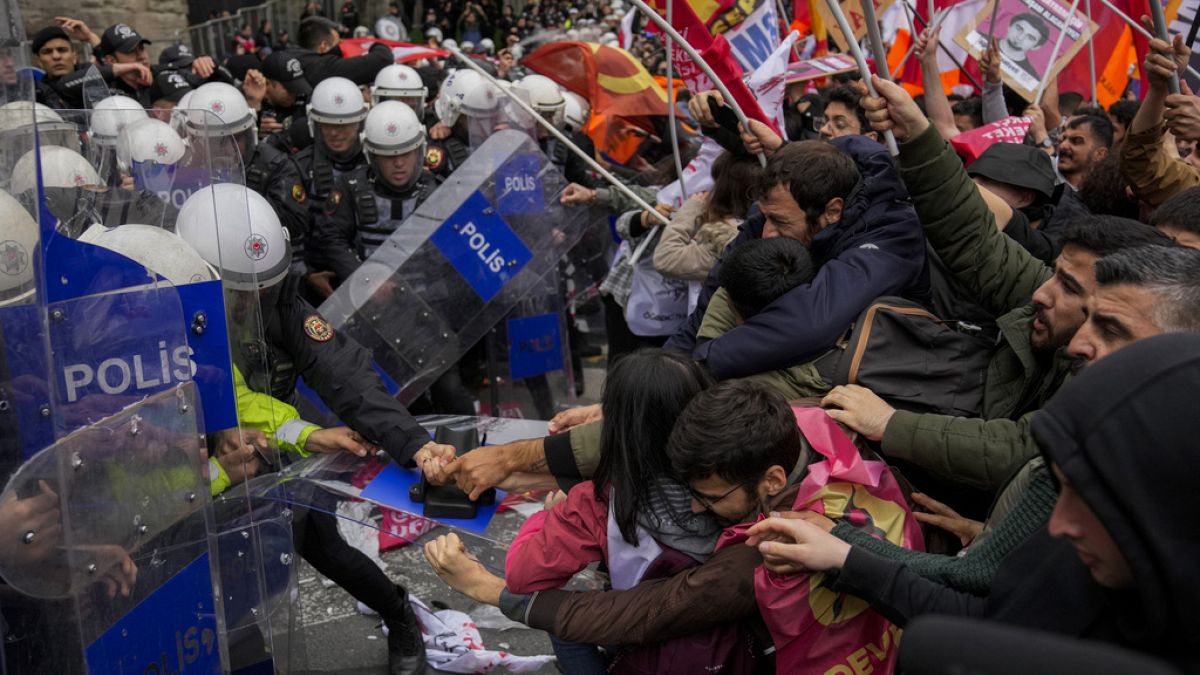In recent years, Taksim Square in Istanbul has become a focal point for political demonstrations and protests. However, President Recep Tayyip Erdogan’s administration has frequently denied permits for gatherings in this historic location, citing security concerns. Despite these restrictions, various political parties and labor organizations have continued to defy the government’s orders and hold demonstrations in Taksim Square.
The significance of Taksim Square as a symbol of resistance and democracy cannot be understated. It has been the site of numerous historic protests, including the Gezi Park protests in 2013, which drew international attention to the Turkish government’s crackdown on dissent. For many activists and protesters, Taksim Square represents a space where their voices can be heard and their grievances addressed.
President Erdogan’s administration’s crackdown on protests in Taksim Square is part of a larger trend of increasing authoritarianism in Turkey. In recent years, the government has cracked down on dissent, arrested opposition leaders, and restricted freedom of speech and assembly. The denial of permits for gatherings in Taksim Square is just one example of the government’s efforts to stifle dissent and control public discourse.
Despite the government’s efforts to suppress dissent, opposition groups in Turkey remain determined to push back against President Erdogan’s authoritarian rule. Civil society organizations, political parties, and labor unions continue to organize protests and demonstrations in Taksim Square and other public spaces in defiance of government restrictions. These protests are a testament to the resilience and determination of the Turkish people in the face of increasing repression.
The government’s crackdown on protests in Taksim Square has sparked criticism from human rights organizations and foreign governments. The international community has expressed concern about the erosion of democratic norms in Turkey and the government’s suppression of dissent. In response to these criticisms, President Erdogan’s administration has defended its actions, claiming that it is necessary to maintain security and order in the face of perceived threats.
As the political situation in Turkey continues to evolve, the future of protests in Taksim Square remains uncertain. Despite the government’s efforts to suppress dissent, opposition groups and activists show no signs of backing down. The ongoing struggle for freedom of expression and assembly in Turkey will continue to play out in Taksim Square and other public spaces across the country, as civil society organizations and citizens alike fight to uphold their democratic rights and push back against authoritarian rule.








